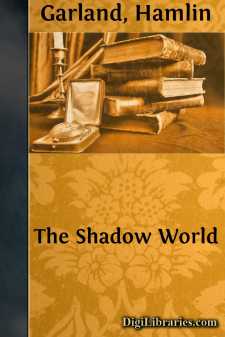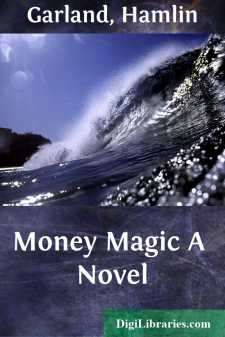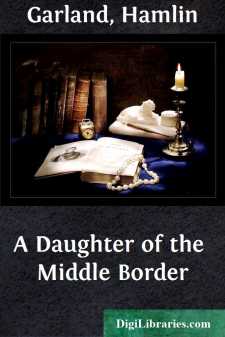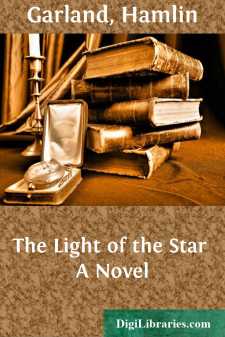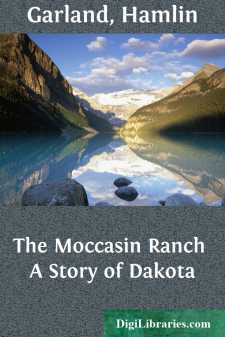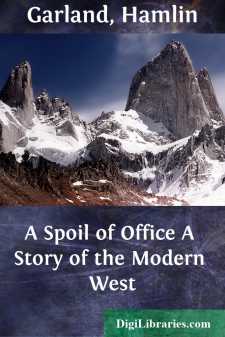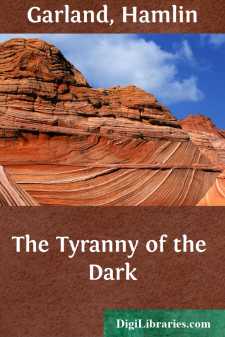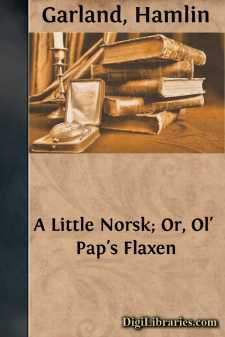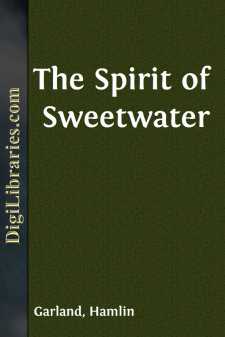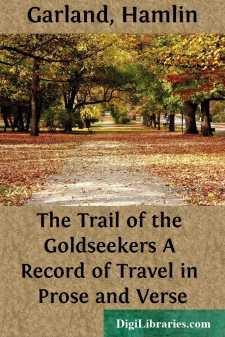Categories
- Antiques & Collectibles 13
- Architecture 36
- Art 48
- Bibles 22
- Biography & Autobiography 813
- Body, Mind & Spirit 142
- Business & Economics 28
- Children's Books 14
- Children's Fiction 11
- Computers 4
- Cooking 94
- Crafts & Hobbies 4
- Drama 346
- Education 46
- Family & Relationships 57
- Fiction 11829
- Games 19
- Gardening 17
- Health & Fitness 34
- History 1377
- House & Home 1
- Humor 147
- Juvenile Fiction 1873
- Juvenile Nonfiction 202
- Language Arts & Disciplines 88
- Law 16
- Literary Collections 686
- Literary Criticism 179
- Mathematics 13
- Medical 41
- Music 40
- Nature 179
- Non-Classifiable 1768
- Performing Arts 7
- Periodicals 1453
- Philosophy 64
- Photography 2
- Poetry 896
- Political Science 203
- Psychology 42
- Reference 154
- Religion 513
- Science 126
- Self-Help 84
- Social Science 81
- Sports & Recreation 34
- Study Aids 3
- Technology & Engineering 59
- Transportation 23
- Travel 463
- True Crime 29
Hamlin Garland
Hamlin Garland (1860-1940) was an American novelist, short story writer, and essayist known for his realist portrayals of Midwestern farm life. His most famous work, "Main-Travelled Roads" (1891), is a collection of short stories that vividly depict the hardships and struggles of rural farmers. Garland received the Pulitzer Prize for Biography in 1922 for his autobiography "A Daughter of the Middle Border."
Author's Books:
Sort by:
by:
Hamlin Garland
FOREWORD This book is a faithful record, so far as I can make it, of the most marvellous phenomena which have come under my observation during the last sixteen or seventeen years. I have used my notes (made immediately after the sittings) and also my reports to the American Psychical Society (of which I was at one time a director) as the basis of my story. For literary purposes I have substituted...
more...
by:
Hamlin Garland
THE CLERK OF THE GOLDEN EAGLE Sibley Junction is in the sub-tropic zone of Colorado. It lies in a hot, dry, but immensely productive valley at an altitude of some four thousand feet above the sea, a village laced with irrigating ditches, shaded by big cotton-wood-trees, and beat upon by a genial, generous-minded sun. The boarders at the Golden Eagle Hotel can sit on the front stoop and see the...
more...
by:
Hamlin Garland
—I— To My New Readers In the summer of 1893, after nine years of hard but happy literary life in Boston and New York, I decided to surrender my residence in the East and reëstablish my home in the West, a decision which seemed to be—as it was—a most important event in my career. This change of headquarters was due not to a diminishing love for New England, but to a deepening desire to be near...
more...
by:
Hamlin Garland
THE LIGHT OF THE STAR FTER the appointment with Miss Merival reached him (through the hand of her manager), young Douglass grew feverishly impatient of the long days which lay between. Waiting became a species of heroism. Each morning he reread his manuscript and each evening found him at the theatre, partly to while away the time, but mainly in order that he might catch some clew to the real woman...
more...
by:
Hamlin Garland
MARCH Early in the gray and red dawn of a March morning in 1883, two wagons moved slowly out of Boomtown, the two-year-old "giant of the plains." As the teams drew past the last house, the strangeness of the scene appealed irresistibly to the newly arrived immigrants. The town lay behind them on the level, treeless plain like a handful of blocks pitched upon a russet robe. Its houses were...
more...
by:
Hamlin Garland
THE GRANGE PICNIC. Early in the cool hush of a June morning in the seventies, a curious vehicle left Farmer Councill's door, loaded with a merry group of young people. It was a huge omnibus, constructed out of a heavy farm wagon and a hay rack, and was drawn by six horses. The driver was Councill's hired man, Bradley Talcott. Councill himself held between his vast knees the staff of a mighty...
more...
by:
Hamlin Garland
THE SETTING The village of Colorow is enclosed by a colossal amphitheatre of dove-gray stone, in whose niches wind-warped pines stand like spectators silent and waiting. Six thousand feet above the valley floor green and orange slopes run to the edges of perennial ice-fields, while farther away, and peering above these almost inaccessible defences, like tents of besieging Titans, rise three great...
more...
by:
Hamlin Garland
CHAPTER I. HER ADOPTIVE PARENTS. "Ans, the next time you twist hay f'r the fire, I wish't you'd dodge the damp spots," said the cook, rising from a prolonged scrutiny of the stove and the bread in the oven. His pose was threatening. "Cooks are always grumblin'," calmly remarked Anson, drawing on his gloves preparatory to going out to the barn; "but seein'...
more...
by:
Hamlin Garland
The Spirit of Sweetwater CHAPTER I One spring day a young man of good mental furnishing and very slender purse walked over the shoulder of Mount Mogallon and down the trail to Gold Creek. He walked because the stage fare seemed too high. Two years and four months later he was pointed out to strangers by the people of Sweetwater Springs. "That is Richard Clement, the sole owner of 'The...
more...
by:
Hamlin Garland
ANTICIPATIONI will wash my brain in the splendid breeze,I will lay my cheek to the northern sun,I will drink the breath of the mossy trees,And the clouds shall meet me one by one.I will fling the scholar's pen aside,And grasp once more the bronco's rein,And I will ride and ride and ride,Till the rain is snow, and the seed is grain.The way is long and cold and lone—But I go.It leads where...
more...


